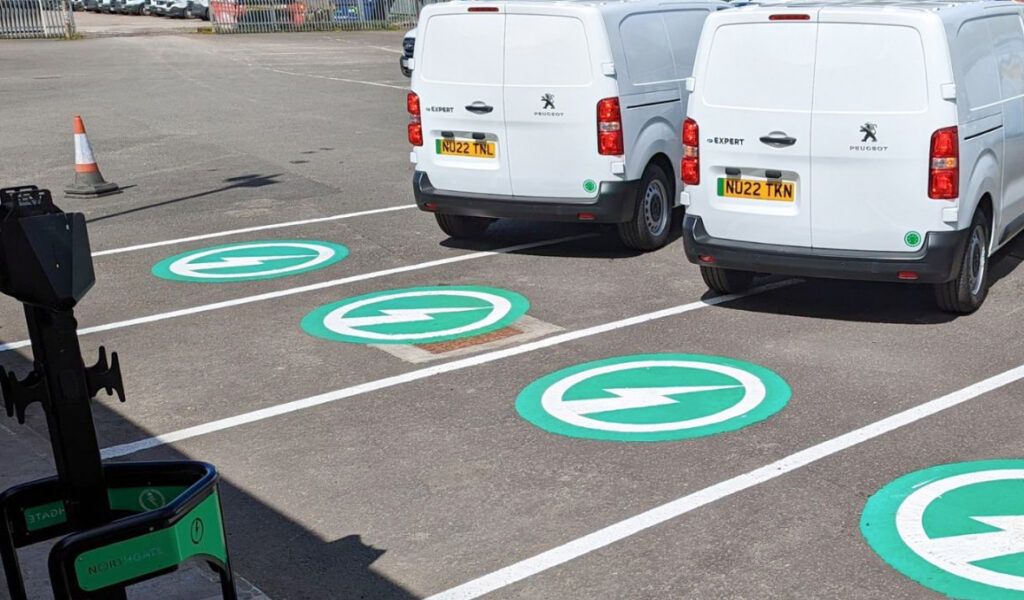London, UK: The UK government has launched a two-month consultation on its plans for a Zero Emissions Vehicle Mandate for the van and car sectors.
But there is still huge uncertainty about the government plans and if there is to be any help for operators making the switch. The Zero Emissions Vehicle Mandate will compel manufacturers to sell a rising proportion of electric vehicles before the 2030 ban on conventional petrol and diesel.
Starting next year, the Mandate will require vehicle makers to ensure at least 22% of their new car sales and 10% of new vans are zero emissions in 2024. This will then rise incrementally each year to 80% for cars and 70% for vans in 2030, and 100% for both by 2035. Vehicle makers that fail to achieve these sales targets will be subject to fines, with a system of proposed flexibilities and credits.
The SMMT warns in an article that it is still unclear of the technologies permitted for sale between 2030 and 2035, which must have some as yet undefined ‘significant zero emission capability’.
The consultation also states that only true “zero carbon” technologies will be permitted post 2035, which could rule out synthetic e-fuels as an alternative to electrification or hydrogen.
Mike Hawes, chief executive, SMMT, said in the article: “Automotive is on track to deliver zero emission motoring, so we welcome this long-awaited consultation on a watershed regulation for the UK new car and van market.
“While the proposals rightly reflect the sector’s diversity, late publication and lack of regulatory certainty make product planning near impossible, and the continued lack of clarity as to what technologies will be permitted beyond 2030 undermines attempts to secure investment.”
Government is now seeking views on the final proposed regulatory framework and is consulting on a number of specific points. Government also confirmed it will invest a further £381m via the Local Electric Vehicle Infrastructure fund, along with £15m for the On-Street Residential Chargepoint Scheme, to help install tens of thousands of new chargers across the UK – backed by private sector investment.
In February, ministers announced the expansion of the Local Electric Vehicle Infrastructure pilot, with 16 more councils receiving funding to deliver new charging infrastructure for residents, such as faster on-street charge points and larger petrol station-style charging hubs.
“The SMMT, while welcoming government measures to improve the customer charging experience, warns that contactless credit or debit card payments will not be available on the vast majority of public chargers: a major failing that will significantly disadvantage electric vehicle drivers,” the SMMT says.

Hawes said: “It is also disappointing that, unlike in other countries, there is no commensurate regulation to drive investment into the public network given that paucity of charge points remains the biggest barrier to buying an electric vehicle.
“Ultimately, for this mandate to be successful, infrastructure providers must now turn promises into investment and catch up with the commitments of vehicle manufacturers.”
Tim Slatter, Ford Britain chair, said: “Ford is on an accelerated path to an all-electric vehicle portfolio and carbon neutrality by 2035, and fully supports the government’s ambition for a zero emission future.
“The ZEV Mandate is a crucial piece of the electrification puzzle that provides a vital indicator of charging infrastructure needs in the coming years. We know from our customers that the biggest barrier to uptake of electric vehicles remains the availability and ease of charging.”
According to the SMMT article, “Stellantis, which is committed to achieving 100% electric new car and van sales in the UK and Europe by 2030, across all of its brands including Vauxhall, Peugeot, Fiat and Citroen, said it fully supports UK government’s ambitions. As outlined in its Dare Forward 2030 plan, the firm plans to be carbon net zero by 2038. However, Paul Willcox, senior vice president and group managing director, Stellantis UK, said: “We now urgently need to have certainty and regulatory clarity on the pathway that the government will set, strong support for the industry in making the necessary investments in the manufacture of electric vehicles in the UK and action to develop our battery manufacturing capacity.”
“On charging, we welcome the clarity brought however, it is disappointing that there is not a clearer requirement to provide a minimum charging capacity per low-emission vehicle or to ensure a minimum density of fast chargers on our major road transport routes in order to further increase consumer confidence,” Willcox said.
“The UK new van market is already moving at pace towards electrification – the result of massive investment by manufacturers and increased consumer demand”, the SMMT says. “However, if the UK is to lead the global race to zero emission mobility, it must go further and faster in unlocking infrastructure investment, incentivising EV ownership and helping ensure more of these vehicles are developed and built in Britain.”







